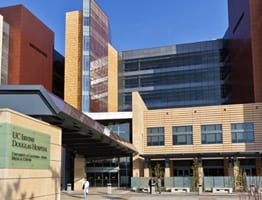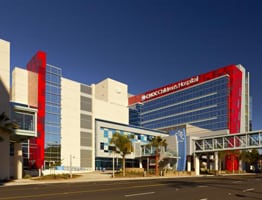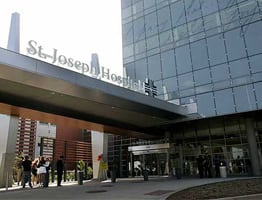
Benefits of Endoscopic Skull Base Surgery
Medical technology has transformed the manner in which doctors can now treat and perform head and brain surgery. They no longer are relegated to using invasive and painful means to treat patients for a variety of skull, sinus, or neurological conditions. Decide if endoscopic skull base surgery may be right for you and what benefits it can offer you as a patient.
What is Endoscopic Skull Base Surgery?
Endoscopic skull base surgery is a minimally invasive procedure that utilizes a lighted endoscope that is inserted through the sinuses to identify, target, and treat growths, injuries, and illnesses inside the skull cavity. Depending on the condition being treated, the endoscope may be angled to allow for better access to the injury or illness.
The endoscope is lighted to allow doctors to see clearly what structures and areas should be targeted during the surgery. It also may be used in conjunction with computer generated three-dimensional imagery to provide better pictures of the tumor or growth inside of the skull.
Because of the small size of the endoscopic equipment being used, this type of brain surgery is precise and comes with fewer risks than traditional brain surgery. It is less invasive and is faster from which to recover in many cases.
Endoscopic skull base surgery also results in less scarring and cosmetic damages to the patient’s appearance. Unlike traditional brain surgery, which typically requires extensive cutting and possible removal of some parts of the skull to reach the growth or tumor, this procedure does not compromise a patient’s appearance and is less painful.
As it becomes more commonly utilized in hospitals and medical facilities across the U.S., you may wonder which conditions can be treated with endoscopic skull base surgery. It now benefits more patients who otherwise may have had to undergo extensive and invasive operations to treat their illnesses or injuries.
Why is Endoscopic Skull Base Surgery Performed?
Endoscopic skull base surgery is performed to treat, remove, or minimize tumors or growths inside of the skull. However, it is also utilized to correct or lessen injuries or illnesses caused by congenital defects or accidents like falls or concussions.
Doctors also use in situations such as:
- Rathke cleft cysts
- Lesions
- Hormonal disorders
- Mucus secreting gland cancer
- Tumors in the dermoid, epidermoid, or pituitary gland
Moreover, it is now commonly utilized to address illnesses like:
- Chondroma
- Cushing’s disease
- Invasive fungal sinusitis
- Compression of the optic nerve
- Squamous cell carcinoma
Endoscopic skull base surgery can be performed on patients of all ages including children who otherwise may be disqualified from more invasive brain surgery.
Benefits of Endoscopic Skull Base Surgery
Endoscopic skull base surgery comes with numerous benefits that make it appealing to both surgeons and patients. It is minimally invasive, meaning that surgeons do not have to perform extensive cutting into the skull. It is also faster to perform and can be done within an hour or slightly longer depending on the condition being treated.
It likewise is less painful and requires less sedation or general anesthesia than traditional surgery. While it is typically performed in the hospital, patients do not need to check in for lengthy stays. Many patients can go home within one or two days after their surgeries.
Because it is less invasive, there is also a smaller risk of post-operative infection. The incision site will be closed with sutures or skin adhesive. However, the small size of the incision itself means that there is less of a chance of bacteria and viruses causing infection at the site.
This surgery results in little, if any, noticeable scarring. Most incisions are made inside of the nose or sinuses. Most patients recover their full appearances and suffer from little to no noticeable cosmetic changes. They remain confident in the way that they look and do not have to worry about others noticing any scars or deformities caused by the surgery.
Finally, endoscopic skull base surgery is faster from which to recover. Many patients are able to get back to their normal routines within a matter of days or weeks. They do not have to take a lot of time off from work or school to recover.
People who suffer from endoscopic skull base illnesses or injuries no longer need to go through extensive and invasive brain surgery. They now may be able to recover faster and better by undergoing endoscopic skull base surgery for cysts, lesions, tumors, and other conditions.









